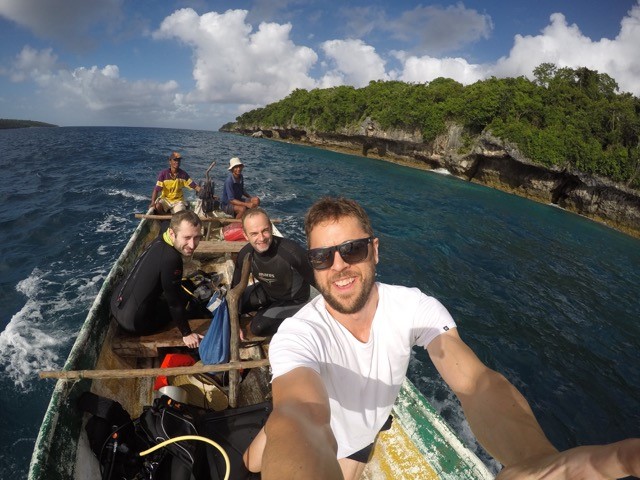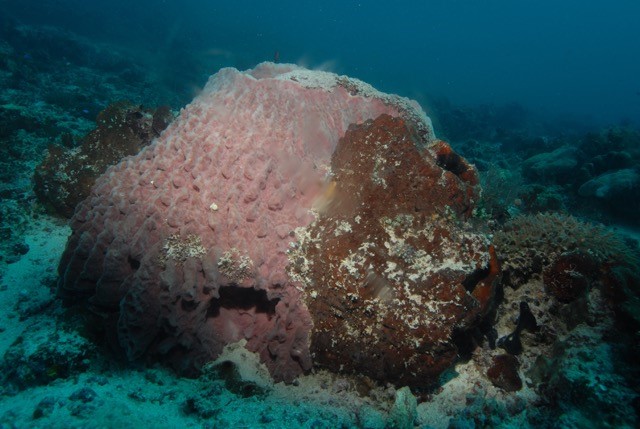Sponge reefs to stand the test of time in the wake of climate change
Victoria University of Wellington researchers are gaining new insight into the future of coral reefs if oceans become more acidic and global temperatures continue to increase.

Associate Professor James Bell from Victoria’s School of Biological Sciences received a Marsden Fund grant last year to build ecosystem models to understand how sponge reefs function compared to coral reefs.
“My research focuses on changes to coral reefs, particularly changes from those dominated by corals to those dominated by sponges. The aim is to understand what tropical reefs will look like in the future and how they will function, including the potential for them to provide resources, such as food, to humans,” says Associate Professor Bell, who is the director of Victoria’s Marine Conservation programme.
Associate Professor Bell has recently travelled with his research group to the remote Jaco Island on the very far-east tip of Timor Leste.
“We expect that in the future some coral reefs will change to reefs dominated by sponges, as our early evidence suggests that sponges are less sensitive to climate change than corals.
“Some of the reefs surrounding Jaco Island are unique in that they have shallow water sponge dominated reefs with very little coral. In some locations more than half of the seabed is covered in over fifty different species of sponges and these reefs appear to be naturally occurring.

“Our past research has focused on sponge dominated reefs where a just few specialist sponge species have taken over after corals have died, but the diverse Jaco Island sponge reefs provide an opportunity to study sponge reefs more likely to be found in the future, those with many species of sponge.”
Associate Professor Bell is working with the National University of Timor Leste (UNTL) to assist in developing a marine sciences and fisheries faculty through which he hopes students from Victoria University and UNTL can collaborate to explore some of the most pristine and biodiverse coral reefs in the world.
Victoria University signed a Memorandum of Understanding in late 2015 with UNTL and is establishing long-term research, teaching and capacity building links.
